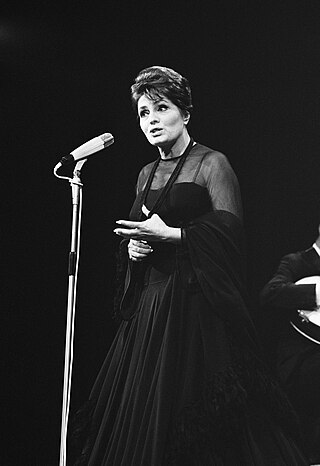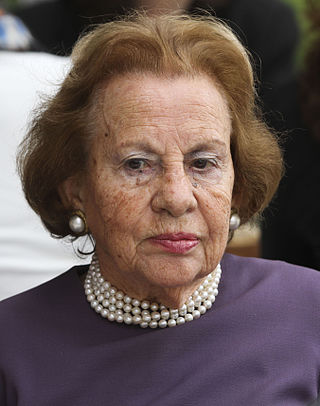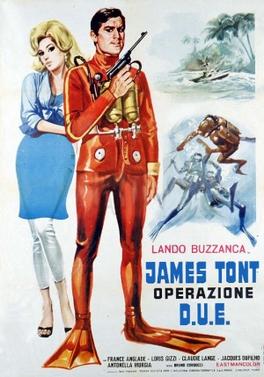
Estoril is a town in the civil parish of Cascais e Estoril of the Portuguese Municipality of Cascais, on the Portuguese Riviera. It is a popular tourist destination, with hotels, beaches, and the Casino Estoril. It has been home to numerous royal families and celebrities, and has hosted a number of high-profile events, such as the Estoril Open and the Lisbon & Estoril Film Festival.
The International and State Defense Police was a Portuguese security agency that existed during the Estado Novo regime of António de Oliveira Salazar. Formally, the main roles of the PIDE were the border, immigration and emigration control and internal and external state security. Over time, it came to be known for its secret police activities.

Amália da Piedade Rebordão Rodrigues, known as simply Amália Rodrigues or popularly as Amália, was a Portuguese fado singer (fadista).

Cascais is a town and municipality in the Lisbon District of Portugal, located on the Portuguese Riviera. The municipality has a total of 214,158 inhabitants in an area of 97.40 km2. Cascais is an important tourist destination. Its marina hosts events such as the America's Cup and the town of Estoril, part of the Cascais municipality, hosts conferences such as the Horasis Global Meeting.

Maria de Jesus Simões Barroso Soares, GCL was a Portuguese politician and actress, wife of President of Portugal Mário Soares and First Lady of Portugal between 1986 and 1996.

Fernando Casado Arambillet, best known as Fernando Rey, was a Spanish film, theatre, and television actor, who worked in both Europe and the United States. A suave, international actor best known for his roles in the films of surrealist director Luis Buñuel and as the drug lord Alain Charnier in The French Connection (1971) and French Connection II (1975), he appeared in more than 150 films over half a century.

The history of the Jews in Portugal reaches back over two thousand years and is directly related to Sephardi history, a Jewish ethnic division that represents communities that originated in the Iberian Peninsula. In the sixteenth and seventeenth centuries, Portuguese Jews emigrated to a number of European cities outside Portugal, where they established new Portuguese Jewish communities, including in Hamburg, Antwerp, and the Netherlands, which remained connected culturally and economically, in an international commercial network during the seventeenth and eighteenth centuries.

The Palace of Ajuda is a neoclassical monument in the civil parish of Ajuda in the city of Lisbon, central Portugal. Built on the site of a temporary wooden building constructed to house the royal family after the 1755 earthquake and tsunami, it was originally begun by architect Manuel Caetano de Sousa, who planned a late Baroque-Rococo building. Later, it was entrusted to José da Costa e Silva and Francisco Xavier Fabri, who planned a magnificent building in the neoclassical style.
The Independent Foreign Fiction Prize (1990–2015) was a British literary award. It was inaugurated by British newspaper The Independent to honour contemporary fiction in translation in the United Kingdom. The award was first launched in 1990 and ran for five years before falling into abeyance. It was revived in 2001 with the financial support of Arts Council England. Beginning in 2011 the administration of the prize was taken over by BookTrust, but retaining the "Independent" in the name. In 2015, the award was disbanded in a "reconfiguration" in which it was merged with the Man Booker International Prize.
BOAC Flight 777A was a KLM flight scheduled as a British Overseas Airways Corporation civilian airline flight from Portela Airport in Lisbon, Portugal to Whitchurch Airport near Bristol, England. On 1 June 1943, the Douglas DC-3 serving the flight was attacked by eight German Junkers Ju 88 bombers and crashed into the Bay of Biscay, killing all 17 on board. There were several notable passengers, among them actor Leslie Howard.
At the start of World War II in 1939, the Portuguese Government announced on 1 September that the 550-year-old Anglo-Portuguese Alliance remained intact, but since the British did not seek Portuguese assistance, Portugal was free to remain neutral in the war and would do so. In an aide-mémoire of 5 September 1939, the British government confirmed the understanding. As Adolf Hitler's occupation swept across Europe, neutral Portugal became one of Europe's last escape routes. Portugal was able to maintain its neutrality until 1944, when a military agreement was signed to give the United States permission to establish a military base in Terceira Island in the Azores and thus its status changed to non-belligerent in favour of the Allies.

Fräulein Doktor is a 1969 spy film loosely based on the life of Elsbeth Schragmüller. It was an Italian and Yugoslavian co-production directed by Alberto Lattuada, starring Suzy Kendall and Kenneth More, and featuring Capucine, James Booth, Giancarlo Giannini and Nigel Green. It was produced by Dino De Laurentiis and has a music score by Ennio Morricone. It was distributed by Paramount Pictures in the United States.

Long Live Maria! is a 1965 adventure comedy film starring Brigitte Bardot and Jeanne Moreau as two women named Maria who meet and become revolutionaries in the early 20th century. It also starred George Hamilton as Florès, a revolutionary leader. It was co-written and directed by Louis Malle, and filmed in Eastman Color. The costumes were by Pierre Cardin.
Secret of the Sphinx is a 1964 film, directed by Duccio Tessari, which stars Tony Russel, Salah Zulfikar, Maria Perschy, Ivan Desny, and Manuela Kent.

The Secret Code (1942) was the 19th serial released by Columbia Pictures. It features the masked hero "The Black Commando" facing Nazi saboteurs, inspired by Republic Pictures' successful Spy Smasher serial of the same year. The chapters of this serial each ended with a brief tutorial in cryptography.

Eurospy film, or Spaghetti spy film, is a genre of spy films produced in Europe, especially in Italy, France, and Spain, that either sincerely imitated or else parodied the British James Bond spy series feature films. The first wave of Eurospy films was released in 1964, two years after the first James Bond film, Dr. No, and in the same year as the premiere of what many consider to be the apotheosis of the Bond series, Goldfinger. For the most part, the Eurospy craze lasted until around 1967 or 1968. In Italy, where most of these films were produced, this trend replaced the declining sword-and-sandal genre.

Pedro Teotónio Pereira was a Portuguese politician and diplomat. He played a decisive role for the Allies, in drawing Spain with Portugal into a neutral peninsular bloc during World War II.
Leopold H. Kerney was the first Irish Minister Plenipotentiary to be appointed to Spain and remained at this post from 1935 until his retirement in 1946. He could be termed a "diplomat by accident" as he began his career in the Irish diplomatic service at the age of 38 when, being primarily interested in promoting direct trade between Ireland and France where he was living at the time, he visited Arthur Griffith in 1919 who appointed him trade representative, then Consul in Paris. The most publicised events of his career during his period in Spain concern his contacts with German agents between 1940 and 1942.
Kleo is a German action-thriller comedy television series co-created by Hanno Hackfort, Richard Kropf, and Bob Konrad for Netflix, premiering in 2022. It follows the revenge journey of a former East German Stasi assassin, Kleo Straub, after her arrest and subsequent imprisonment until the fall of the Berlin Wall.

The Devil Came from Akasava is a 1971 West German-Spanish adventure-spy film directed by Jesús Franco. It was based on a novel by Edgar Wallace called The Keepers of the Stone.













